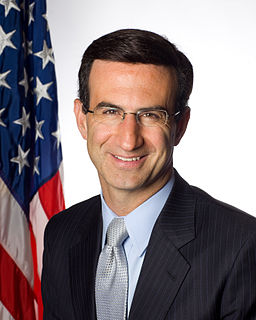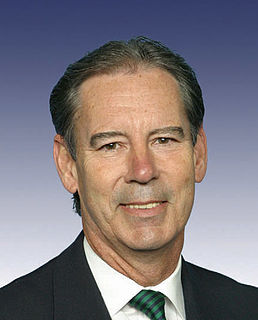A Quote by Cliff Stearns
I believe that we should allow younger workers to contribute toward a personal account that they own, as long as it is coupled with deficit reduction measures that enhance the long-term condition of Social Security.
Related Quotes
The most important thing that a company can do in the midst of this economic turmoil is to not lose sight of the long-term perspective. Don't confuse the short-term crises with the long-term trends. Amidst all of these short-term change are some fundamental structural transformations happening in the economy, and the best way to stay in business is to not allow the short-term distractions to cause you to ignore what is happening in the long term.































